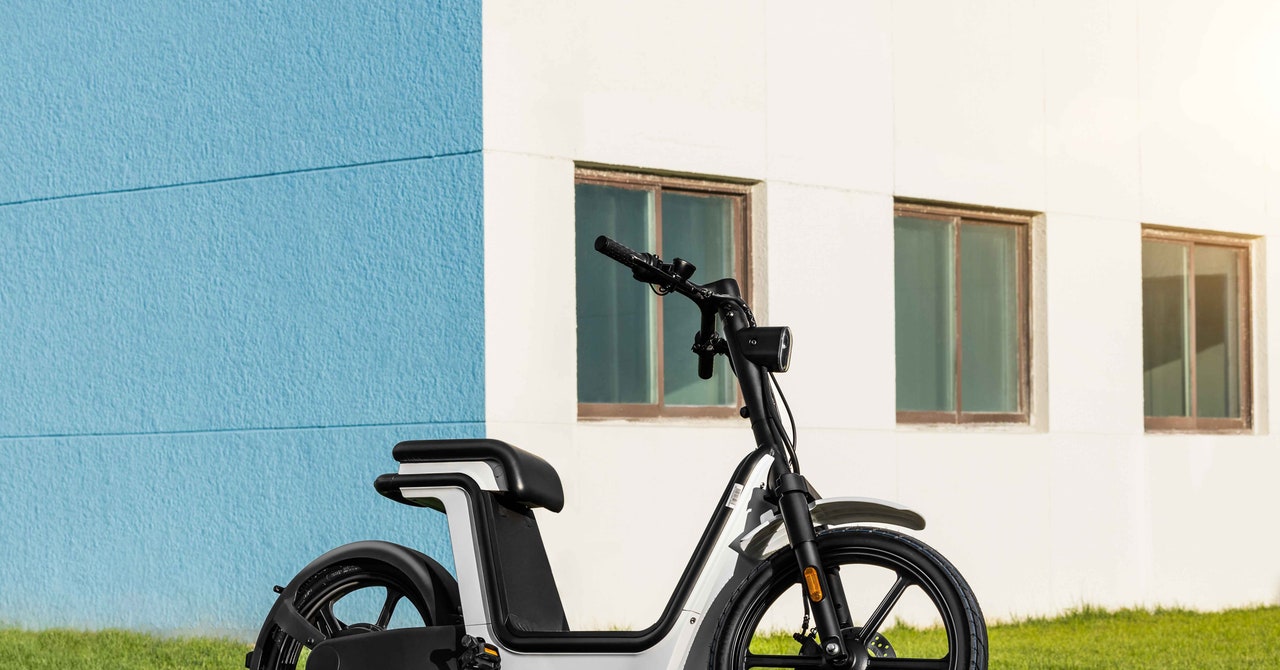Muji has made vehicles before: The Muji Car 1000 from 2001 was the product of a collaboration with Nissan. The limited release of 1,000 badgeless Nissan Marches was spartanly equipped, offered solely in “marble white” and available only online as an exercise to test the company’s web marketing systems.
Muji has a history of creating simple two-wheelers, too—its 1982 H-Type bike shares the pared-back design aesthetic used as inspiration for this MS01. In a way, this new moped takes Honda back to its roots by creating simple mobility solutions for the masses, to try and recapture some of that Super Cub magic.
Raw Aesthetics = Raw Experiences
When the bike arrived at my house, it came with no instructions or guidance on how to use it. This is where the purity begins to shine through: By stripping back the tech and sometimes arduous app-linking of other mopeds, you can just climb on and get going. That’s exactly what I did, and I was quickly whizzing around the streets near my home in Shanghai.
Photograph: Muji
Hewn from one solid piece of aluminum alloy, the simple handlebars, lacking adornment or its competitors’ typical tentacles of wires, feel solid and, most of all, give me confidence in the driving capabilities of the moped. There is a basic, small LCD framed at the center of the handlebars that displays my battery range, trip information, and drive mode. Yet on approaching the first corner from my house, I noticed there are no indicators or wing mirrors. Without them the riding is kept as simple as possible, but feels a little worrying on a morning commute in a city of 24 million people.
Photograph: Muji
Photograph: Muji
Most electric mopeds like the NIU have small wheels, but the MS01 comes with large, 17-inch tubeless wheels, with disc brakes at the front and rear. Push off the kickstand, turn the handle, and you’re off—rapidly at first thanks to its 400-W motor, and then with the power quickly tapering off after about 15 kilometers per hour, up until its limited top speed of 25 kilometers per hour (an admittedly pedestrian 15 mph). I easily beat other mopeds off the line, but soon ran out of puff. This is all to conserve battery—a removable lithium affair rated at 48 V/20 Ah—which has a range of up to 65 kilometers (40 miles) and can easily last a week on a simple urban commute.
I noticed no rattles or shakes of the plastic trim, which is common on other cheaper competitors’ mopeds. Most of all, though, everyone looked at me. The clean black frame against the pure white of the body really stood out against the sea of garish, cheap plastic and lead-acid-battery-powered mopeds.
Hidden under the seat is its single shock absorber, which helps to soften the blows from the bumpy roads. Each time I accelerated smoothly past 15 kilometers per hour, though, there was an incessant beeping sound every five seconds, likely to remind me to stay at cruise speed. It did nothing more than irritate and spoiled the riding experience somewhat.



